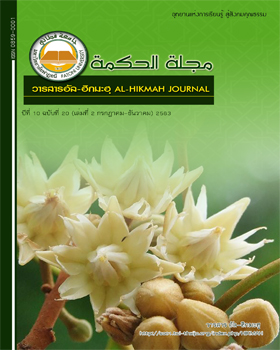The connotation of the term “salat” in the Noble Qur’an: linguistic and morphological context.
The connotation of the term “salat” in the Noble Qur’an: linguistic and morphological context
Abstract
Abstract
The language of references in general loads extensive connotations and multiple interpretations; thus, there is not a charter nor a legislative reference that goes without detailed rules or explanatory commentaries. This is the state of human sources; when it comes to a divine source - as is the case of the Noble Qur’an- the human limited intellects are short of grasping the essence of the Quranic text’s aim and ascertain its meanings. Least, the connotation is established, or had been explicitly exposed by the Prophet –peace be upon Him-. For the rest, it is subject to either the understanding of human interpretation or to those commentators whom Allah has uncovered a verse’s implicit meaning or implications. The Quranic terms load multiple connotations that vary in light of the contextual origins; the term “salat” is bound by this same principle. Consequently, this study aims to investigate the contextual connotations, conjugative stems and frequency of the term “salat’ in the Noble Qur’an. The study adopted and inductive approach to trace the specific connotations of the term “salat”, in accordance with its Quranic contexts, and collect and discuss the views of the Qur’an commentators. The objective is to reach a common basis/rule allowing the identification of the categories of connotations, their adoptive contexts and their tally. The study achieved a score of results, the most essential being: the term ‘salat’ connotes the five daily prayers 48 times. It means both the compulsory and recommended prayers 4 times. It implies the Fear Prayer 4 times. To mean the Friday Prayer twice and Funeral Prayer once. 7 times with a connotation of manifold senses. To imply enjoined prayers on previous heavenly religions, 10 times and 3 times in regards the hypocrites’ prayer. Lastly to denote the prayer of disbelievers once. As for the location of prayer, it is inferred to 3 times; so is to mean mercy and absolution. In the end, the term means supplication 5 times and the practice of prayer with Qur’an recitation once.



